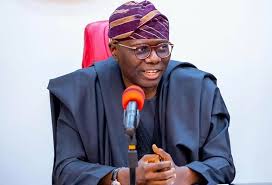In celebration of the 2021 World Obesity Day, which is celebrated on March 4, every year, some non governmental organisations (NGOs) have called on government to take decisive step in curbing obesity in Nigeria.
In a statement Thursday in Abuja, the NGOs implored government to place heavy taxes on sugary drinks, in order to tackle the issue of obesity, which they identified as a risk factor for several non-communicable diseases (NCDs) such as diabetes, cardiovascular diseases, hypertension, stroke, and various cancer forms.
The statement was jointly signed by the African Youth Initiative on Population, Health and Development (AfrYPoD), Project Pink Blue, Association for Reproductive and Family Health (ARFH),Lafiya Wealth Initiative, Make Our Hospital Work Campaign, TalkHealth9ja, Breast Without Spot Initiative (BWS), HAPPY Nigeria, Nigerian Youth Union (NYU), Corporate Accountability and Public Participation Africa (CAPPA), Gatefield Impact, Testrogen Innovation Hub, The GUIHDE Initiative and Vaccine Network for Disease Control.
The statement reads: “World Obesity Day (March 4) is a global day of awareness about obesity, underscoring the importance of this urgent health issue that affects people worldwide. Obesity is a disease that now affects 35% of all Nigerians from all walks of life.
“Obesity is a risk factor for several non-communicable diseases (NCDs) such as diabetes, cardiovascular diseases, hypertension, stroke, and various cancer forms. Recent studies reveal that obesity increases the mortality risk of COVID-19 by nearly 50%, making it a significant mortality risk factor.
“The consumption of sugar-sweetened beverages (SSBs), commonly known as soft drinks, is strongly associated with obesity in Nigeria. Nigeria ranks the 4th highest soft drink consuming country globally, with over 40 million litres sold yearly. These soft drinks contain damaging sugar levels and put their consumers, mostly poor people, at grave risk.
“Children are often served soft drinks with their meals and snacks, putting them at risk of childhood obesity. About 4 million Nigerians are suffering from diabetes linked to excess sugar consumption. While many poor Nigerians can afford to buy soda, they cannot afford to treat diabetes, cancer, stroke and other NCDs.
“As frontline non-governmental organisations working to prevent communicable and control NCDs in Nigeria, we cannot afford to see the detrimental health and economic effects of easy access to sugar-sweetened beverages and processed foods go unchallenged. We, therefore, call on the Nigerian government to tackle obesity as an emergency health issue by taking the following measures towards the reduction of sugar content in soft drinks and other processed foods;
“Tax Sugar-Sweetened Beverages: Introducing a specific excise duty of 20% on SSBs such as soda and energy drinks. The government should use this tax to fund the prevention and treatment of NCDs in Nigeria.
“Prevent sugar-sweetened beverage producers from advertising their products to children. Ensure a mandatory warning label on sugar-sweetened beverages to make sure consumers know the product’s sugar levels and health risks.
“On this World Obesity Day, we urge all Nigerians to be aware of the risks of sugar-sweetened beverages and ensure they hold themselves accountable to reduce their intake and embrace healthy habits including physical exercise, drinking water, and sleeping properly.”




